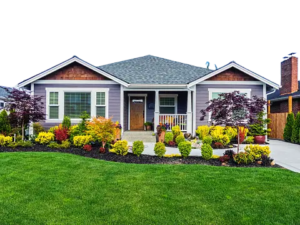The roofing system is a very important consideration either a commercial or a residential building because this will protect the whole structure from various environmental factors. It won’t be sunny the whole year round and you will experience other weather conditions as well, so your roof has to be tough and ready to face any situation. That’s why an expert must carefully plan about what roof to install, materials to use, how this will be properly installed, and the people who will work on the project.
It is not enough to simply prepare the plan for such an important task because you cannot always rely on repairing the problem even if you find it cheaper but you should also consider replacement. That’s why you have to learn about the asphalt shingle warranty even before starting the project or finding a contractor to deal with. I guess you need to consult an expert from a reliable company when you have plans of installing or repairing a roofing system.
In this way, you can find out and understand where warranties come in before signing a contract because this is a concern that homeowners or commercial building owners must know. You may trust a contractor in terms of their expertise in this industry but it is also important to learn how they can help and how this project can be beneficial to your property. Regardless of the contract’s size, warranties matter the most for you to be mindful of the roof if it is protected and what is covered.
Shingle vs Workmanship Warranties
When dealing with a roofing contractor, you will be meeting two different warranties so we have the shingle and the workmanship. These two, especially the one from manufacturers often confuses homeowners. The manufacturer provides for the material, while workmanship is covered by the roofing company or roofer so they will usually give you a 10-year duration.
The roofer will have to deal with the faults that are often caused by human errors. And then, the manufacturer covers various errors due to asphalt manufacturing so they have to shoulder the repairs, as well as the replacement of defective materials. The coverage period will usually last for a maximum of 50 years – read https://www.levelset.com/blog/workmanship-warranty/#What_Is_a_Warranty_of_Good_Workmanship for additional info.
Understanding the Manufacturer’s Coverage
Home and commercial building owners need to be aware of this coverage because this will be your protection when materials bought or installed have defects. The period covered is not about the shelf life of the roof which could be more than 25 years and not either about the wear and tear issues.
You should also know that most of the policies apply to the original owner of the property so if you will sell the house, then they are not protected or insured. I guess you may check on manufacturers, offering a transferable warranty so that new owners can benefit, too. Anyway, you just need to clear the terms, requirements, and limitations specified in the documentation to avoid confusion.
Do not forget that you might be having a prorated term from the start. This means that the value of the asphalt shingle may have been already calculated and then it may decrease as time passes by. Though some also start with non-prorated and will be prorated after a specified time.
Defects and Damages Covered/Excluded
Signs of defective asphalt shingles include significant or excessive curling, bald spots, spotting, cracking, and blistering. If the materials that you have chosen are algae-resistant, then algae formation is also included – continue reading here for more examples.
You must also ask the manufacturer or check the terms for more details when it comes to damages or defects. It would be best to know if leaks or anything that can affect the overall performance of the roofing system are included because others don’t provide this.
Common damages are excluded from the warranty. These are damages on the wall, window, ceiling, furniture, and other things indoors or outdoors, due to roof leaks or nature-related issues. Roof deck or wall repairs due to structural distortion and improper way of installation of equipment that is not authorized may also void the warranty, especially when asphalt shingles are affected or altered. In some cases, discoloration because of some issues, such as paint, stain, algae, mold, moss, fungus, and mildew may be excluded.
